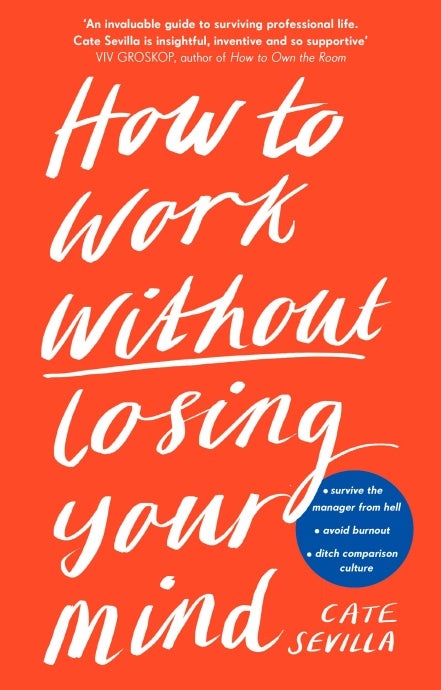I Work So Hard At My Job But Outgoing People Get More Praise
Illustrated by Joonho Ko.
There's a lot to contend with when you're climbing the career ladder these days. No longer is it a case of head down, work hard and move up (as if it ever was); these days, the path to success is decidedly more zigzagged. From the trivial – being expected to use language like 'pivot' and 'triangulate' and the network-y after-work socials (no, Kevin, I don't want another drink) – to the much more serious – think sexual harassment, implicit bias and outright discrimination – it's a murky world out there. Even the type of place we work has changed; from startups with no HR department to striking out on your own as a freelancer, we aren't always blessed with the (relatively) safe net that full-time employment should provide. Chuck a pandemic into the mix and between furlough and redundancies, working from home and COVID-downplaying bosses, it's a wonder we're keeping on keeping on.
AdvertisementADVERTISEMENT
Which is why a little bit of help feels like it's due. Luckily, Cate Sevilla, writer, author and the last editor of website The Pool, who's also worked at high pressure companies like Google, has written a guide for us: How To Work Without Losing Your Mind. From surviving the manager from hell (gaslighting is real!) to avoiding burnout and learning to ditch comparison culture, the book is your manual for navigating the confusing modern world of work. And for the past few weeks, Cate's been answering your questions on how to deal with your specific issues.
This week: You keep your head down and work super hard, so why are your much louder, more workshy colleagues getting all the attention?
"I feel very confident in my skills and ability to do my job well but I’m not the most outgoing person. As much as I love my job I find it very frustrating that so much of my industry (media, but I suspect this applies to lots of other industries too) is full of big personalities who feel comfortable shouting about their achievements. It makes me so sad that things like pay rises and recognition only seem to come if you demand them – what if that's just not part of your personality? I still do my job well! I know other, also quiet and hardworking people who keep their heads down and get overlooked when it comes to opportunities so I don’t think it’s just me. I guess my question is, is there any point in hard work if you don’t big yourself up afterwards? (Or post your achievements on Instagram?!)"
AdvertisementADVERTISEMENT
Cate says: This is such a complex (and juicy) work topic that impacts so many of us – whether we’re employed, in part-time work or self-employed. Even when you’re technically unemployed and looking for work, these anxious feelings can come up. In fact, isn’t the real reason so many of us are loath to update our CVs, LinkedIn profiles and personal websites because we’re being forced to reckon with and talk publicly about our achievements?
Being shy, introverted or having a different personality type from the Alpha Career Woman who sings their own praises and seemingly has no shame in speaking openly about their achievements can feel really isolating and overwhelming. In addition to CV updates, this is particularly difficult when it comes to annual reviews, promotions and asking for a salary increase. A big part of this anxiety is fuelled by our current working systems and structures which seem to value and understand only extroverted personality types and stereotypically male styles of communication when evaluating performance. Managers have so much to answer for – because really, only paying attention to or rewarding those who shout loudest about themselves is just plain lazy. Just because someone is always speaking up in meetings doesn’t mean they’re actually hitting their targets and deserve a raise (or, sometimes, even know what they’re talking about).
Another uncomfortable element of this problem is that if you work for an international company that was founded in another Western country such as the US, their review process and framework for promotions seem to be built with only one personality type in mind – unfortunately, this is usually an extroverted tech bro. There’s no space for cultural differences or nuance. It’s true that some cultures simply have more direct and blunt communication in English than others, and other cultures typically aren’t quite as comfortable with speaking plainly about themselves. Year-end reviews don’t really make room for self-deprecating humour! Sometimes, these processes are in fact so uncomfortable and so against cultural norms that they create an environment where so many workers just cannot be bothered to jump through the extroverted language hoops to even try for a promotion or salary increase.
AdvertisementADVERTISEMENT
But beyond poor management and a system that works against us, there is an element to all of this that we can actively work to change. Traditionally, women and young girls are not taught how to comfortably talk about their achievements – although this issue is not gender exclusive. We are taught to not take up space (figuratively or physically) and most have been raised with the belief that we should not brag or seem overly confident so that we do not appear overly impressed with ourselves. Our success and our ambitions have been culturally weaponised – a threat to men and a threat to our peers, so it’s best to keep quiet and only speak up when we absolutely have to. But honestly, fuck that. You don’t need to adopt the language, persona or body language of an American Boss Bitch in order to get a raise. You can be yourself – but you’re going to need to challenge yourself to stop shrinking. Keeping your head down and being overlooked absolutely sucks but it’s up to each of us to speak up when it matters.
As Elizabeth Day wrote for Allbright, work on claiming your success. Claim your space. Claim your work. Claim what you’ve done. If you need to write up a case for why you should be promoted, evaluate your own work or even just describe your last job role for a CV, bring yourself up out of your shame and embarrassment and write about yourself in the third person if you have to. How would you describe your work, your achievements, the awards you’ve won, if you weren’t so afraid of what other people thought about it or how you come across? We don’t need more Alphas (or try-too-hard pretend Alphas) in the workplace. We need more people who are comfortable in their own skin and – crucially – in their own personality, who are then also willing to speak plainly and matter-of-factly about what they’ve achieved and how they did it. You can keep your head down most of the time if that’s how you work best, but don’t miss the opportunities to put yourself forward, even if it makes you a bit uncomfortable. Growth, particularly in our careers and self-development, is rarely comfortable.
AdvertisementADVERTISEMENT








